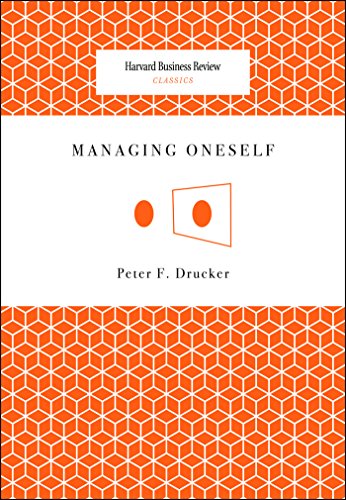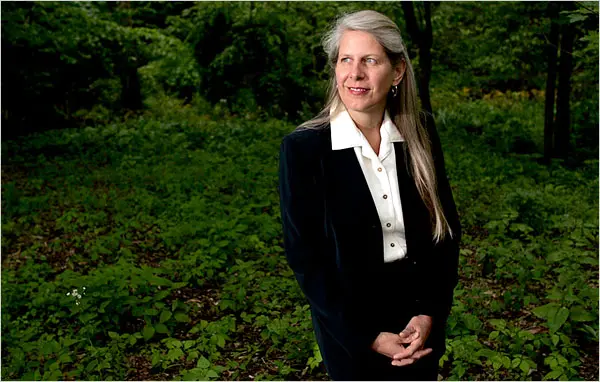
8 Key Lessons on Managing Oneself
As I relax on this lovely morning, I can’t help but ponder on the importance of “managing oneself.” It’s about keeping a watchful eye on our daily actions and making necessary changes to achieve our goals efficiently, productively, and with laser-sharp focus. The “I am” I’m referring to is none other than the person staring back at me in the mirror – the “me” that’s been with me all along.
I’ve often heard that successful individuals possess a higher level of self-awareness. This inner understanding enables them to remain grounded and, ultimately, more productive than most. That’s why I’ve created this blog – to explore and master the art of self-management. The inspiration behind this blog came from reading Peter Drucker’s concise yet impactful book, “Managing Oneself.”
So here’s the million-dollar question: what are the eight fundamental principles of self-management that we can apply to our daily lives? What sets high achievers apart in their ability to manage themselves with such finesse? We’ll be diving into these topics, and I hope that together, we can discover the secrets to unlocking our full potential.
1. Uncover And Focus On Your Strengths
We have heard the idea of focusing on your strengths instead of your weaknesses, it has become common knowledge today, but I encountered this idea first in Peter Drucker‘s essay “Managing Onself.” Although, I believe this idea is only useful if we know what our strengths are already.
Therefore, the first step is finding our strengths, but what if we don’t think we are good at anything? It’s possible we have yet to uncover our strengths, perhaps due to a lack of trying enough things.
Everyone has a unique set of strengths, a superpower they were born with. These skills might not be extraordinary at first, but they are slightly better than those of others. By exploring new opportunities, we can slowly discover our strengths.
However, I believe that this idea is only useful if you know what your strengths are. What if you don’t think you’re good at anything? It’s possible that you simply haven’t tried enough things yet.
This is why it’s important to let children try different things early on — karate, piano lessons, singing, dancing, puzzles, art, reading, and other activities may be good to introduce to children. In the thick of it all, we can observe that we gravitate towards things we are interested in, are good at, or receive positive feedback from others, which can indicate our strengths.
Once we identify our strengths, we must develop them to achieve more and overcome weaknesses in other areas. Moreover, by identifying and focusing on our strengths, we can bring more value to the world. We use our superpowers to be our best selves.
2. Leave Your Ego At the Door (Work and Learn)
I believe countless individuals in the world had the potential to achieve greatness but gave up on themselves too early.
This may be attributed to a lack of a growth mindset, which I have written about on this blog many times. Wherein they allowed criticisms and failure to become a roadblock and excuse to give up instead of using these to fuel their determination to reach their potential.
On the other side of the coin, some individuals possessed great talent, reached a level of success, and then became complacent, failing to reach their full potential because of their pride.
To continue learning, we must be willing to take on the role of a student repeatedly. There is a certain level of humility involved in being a student, especially after achieving mastery. However, some develop an ego that prevents them from stepping back and returning to the role of a student. As a result, they stop growing, cease learning new ideas, and their progress comes to a halt.
In managing ourselves, it is crucial to continuously learn and to check our egos at the door when we enter a learning environment. Moreover, we must put in the work to hone our craft.
3. Develop Self-Awareness and Self-Introspection
Within the last 50 years, studies on self-awareness generally view self-awareness as the ability to monitor our inner world or as a temporary state of self-consciousness. Additionally, some researchers describe it as the difference between how we see ourselves and how others see us.
There are two types of self-awareness. The first refers to how clearly we see our own values, passions, aspirations, reactions (including thoughts, feelings, behaviors, strengths, and weaknesses), and impact on others. The article “What Self-Awareness Really Is and How to Cultivate It” found that self-awareness is associated with higher job and relationship satisfaction, personal and social control, and happiness. Conversely, it is negatively related to anxiety, stress, and depression.
The second type of self-awareness is external self-awareness, which involves understanding how others perceive us. Furthermore, research shows that people who know how others see them are more empathetic and can better take others’ perspectives. Leaders who see themselves as their employees do tend to have better relationships with their employees, who feel more satisfied with them and view them as more effective in general.
In addition to self-awareness, we must also do some self-introspection, especially when we are too sure of ourselves. Research has shown that experience doesn’t always lead to learning and that expertise doesn’t necessarily help us identify false information. Furthermore, thinking of ourselves as highly experienced can sometimes prevent us from questioning our assumptions and seeking disconfirming evidence.
Self-awareness and self-introspection are valuable tools that we must use to manage ourselves better.
4. Take Responsibility For Your Life
The greatest lesson I have learned is to take full responsibility for how my life has turned out. When we take full responsibility for our own lives, we take control of our destiny. Therefore, responsibility is crucial in achieving personal growth, fulfillment, and success!
We must take ownership of all our actions, and our decisions, regardless of circumstances. The renowned psychologist and author Jordan Peterson emphasizes in his books the importance of recognizing our role in creating our own problems and taking action to solve them rather than blaming others or external factors.
We should focus on developing our character, setting goals, and working towards achieving them, instead of waiting for someone else to come and solve our problems. In my view, embracing personal responsibility is a fundamental step toward living a meaningful and fulfilling life. It demands courage, honesty, and a willingness to confront challenges and take action.
When we take responsibility for every outcome of our lives, we take full accountability for our thoughts, actions, and decisions. We also cannot blame others because others are outside the realm of our control. Therefore, we focus our energy on the things we can control, and it is ourselves.
5. Take Responsibility For Your Energy
“Take responsibility for the energy you bring.”
– Jill Bolte Taylor
I first read about taking responsibility for the energy you bring through the book “My Stroke of Insight” by neuroanatomist and researcher Jill Bolte Taylor where she documented her devastating stroke experience as a human brain researcher. In the book, she shared several insights and one of the most important is to take responsibility for your energy.
During her stroke, Taylor experienced a sudden loss of brain function in the left hemisphere of her brain, which resulted in a feeling of euphoria and a sense of unity with everything around her. She described her experience as being “at one with the universe.”
Taylor’s stroke caused her to lose her ability to speak, read, write, or even recognize objects. She was rushed to the hospital, where she underwent surgery to remove a blood clot from her brain.
During her recovery process, the way she experienced the world changed. Her heightened sense of empathy and compassion enabled her to feel the energy that people bring into the room, as she could not speak or communicate. Wherein she noticed nurses and doctors carried with them certain energies, negative or positive.
When managing ourselves, we must pay attention to our energy levels and the energy we carry into every room and every encounter. Particularly, we must focus on positive thoughts and avoid negative self-talk, as negative energy drains our energy and affect not just our moods but also others.
6. Find Your Flow
Have you ever been so engrossed in your work that hours felt like minutes? This phenomenon is known as “flow,” and it’s a state of mind that we can cultivate for maximum productivity, pleasure, and fulfillment.
The psychologist Mihaly Csikszentmihalyi developed the concept and practice of flow, which involves being completely immersed in a task to the point where we simultaneously experience peak performance and peak experience. In other words, we enjoy what we do while performing at our best. Being “in the zone” allows us to focus entirely on the task at hand, free from distractions, and reap future benefits such as learning, growth, improvement, and exceptional performance.
“If you are interested in something, you will focus on it, and if you focus attention on anything, it is likely that you will become interested in it. Many of the things we find interesting are not so by nature, but because we took the trouble of paying attention to them.”
– Mihaly Csikszentmihalyi, Finding Flow: The Psychology of Engagement with Everyday Life
Mihaly Csikszentmihalyi suggests that to find flow, we need to focus on activities that have clear goals and provide immediate feedback. These activities should be challenging but still within our skill level, allowing us to stretch ourselves without becoming overwhelmed.
Csikszentmihalyi also emphasizes the importance of concentration and deep engagement in the present moment. He suggests that to achieve flow, we must fully immerse ourselves in the activity and let go of distractions and other thoughts.
Additionally, Csikszentmihalyi suggests increasing our chances of experiencing flow by setting clear goals, breaking down tasks into manageable pieces, and finding ways to make the activity more enjoyable or meaningful. He also emphasizes the importance of finding activities that align with our personal interests and values.
Overall, to find flow, we need to focus on activities that challenge us, provide immediate feedback, and allow us to fully engage in the present moment while aligning with our personal interests and values.
7. Set Your Boundaries
Without clear boundaries, it can be difficult to prioritize our own self-care and communicate our expectations to others. Establishing boundaries is crucial for maintaining a sense of respect and safety in our relationships. Although setting boundaries can be difficult, it is necessary for safeguarding our well-being and cultivating healthy relationships.
When we have no set boundaries, we lack clarity on the rules and guidelines for how others should treat us. Therefore, setting our boundaries let others know what is and what is not acceptable to us so that we feel respected and safe.
Firstly, we must identify our limits as a first step in setting boundaries. Therefore, we must understand what makes us feel uncomfortable, what behaviors we are willing to tolerate (or not), and what our needs are in order to thrive.
Secondly, we must communicate these boundaries to others, this could include calling out specifically what behaviors we do not accept and what consequences we are willing to enforce when our boundaries are violated.
Finally, we must assert ourselves by standing up for our rights in clearly expressing our needs and limits and avoiding any aggressive or passive behavior when doing so.
Overall, setting boundaries is not an easy thing, but it is essential for managing ourselves and how we interact with others. It creates a space for us to grow a more fulfilling relationship and practice self-care and effectiveness.
8. Follow Great Thinkers
Managing oneself requires a commitment to lifelong learning and growth, as we must constantly nurture and cultivate our minds. Immersing myself in the ideas and teachings of great thinkers and philosophers is an excellent way to “water my mind” to inspire and guide my personal development.
Fortunately, many contemporary thinkers are making valuable contributions to the subject of self-improvement. I have compiled a list of some of my favorites, and I encourage you to seek out their books, articles, and online work to tap into their wisdom and insights.
- Jordan Peterson – a Canadian clinical psychologist and professor who has gained a large following for his ideas on personal responsibility, self-improvement, and societal issues. Check out his book.
- Brené Brown – a research professor who has gained widespread recognition for her work on vulnerability, shame, and courage. Book: Daring Greatly: How the Courage to Be Vulnerable Transforms the Way We Live, Love, Parent, and Lead
- Eckhart Tolle – a spiritual teacher and author who has written extensively on mindfulness, presence, and living in the present moment. Book: The Power of Now: A Guide to Spiritual Enlightenment
- Sam Harris – a philosopher and neuroscientist who explores morality, spirituality, and consciousness in his work. Book: Making Sense: Conversations on Consciousness, Morality, and the Future of Humanity
- Ryan Holiday – an author and entrepreneur who draws on ancient wisdom and philosophy to offer insights on personal growth and success. Book: The Obstacle Is the Way: The Timeless Art of Turning Trials into Triumph
- Naval Ravikant – an entrepreneur and investor who shares insights on personal growth, wealth creation, and happiness. Book: The Almanack of Naval Ravikant: A Guide to Wealth and Happiness
- Esther Perel – a psychotherapist and author who specializes in relationships, intimacy, and sexuality. Book: Mating in Captivity: Reconciling the Erotic & the Domestic
Following the works and philosophies of great thinkers and reading about their lives can provide the inspiration and wisdom necessary to foster personal growth and a great way to help us manage ourselves as we become the best version of ourselves.













